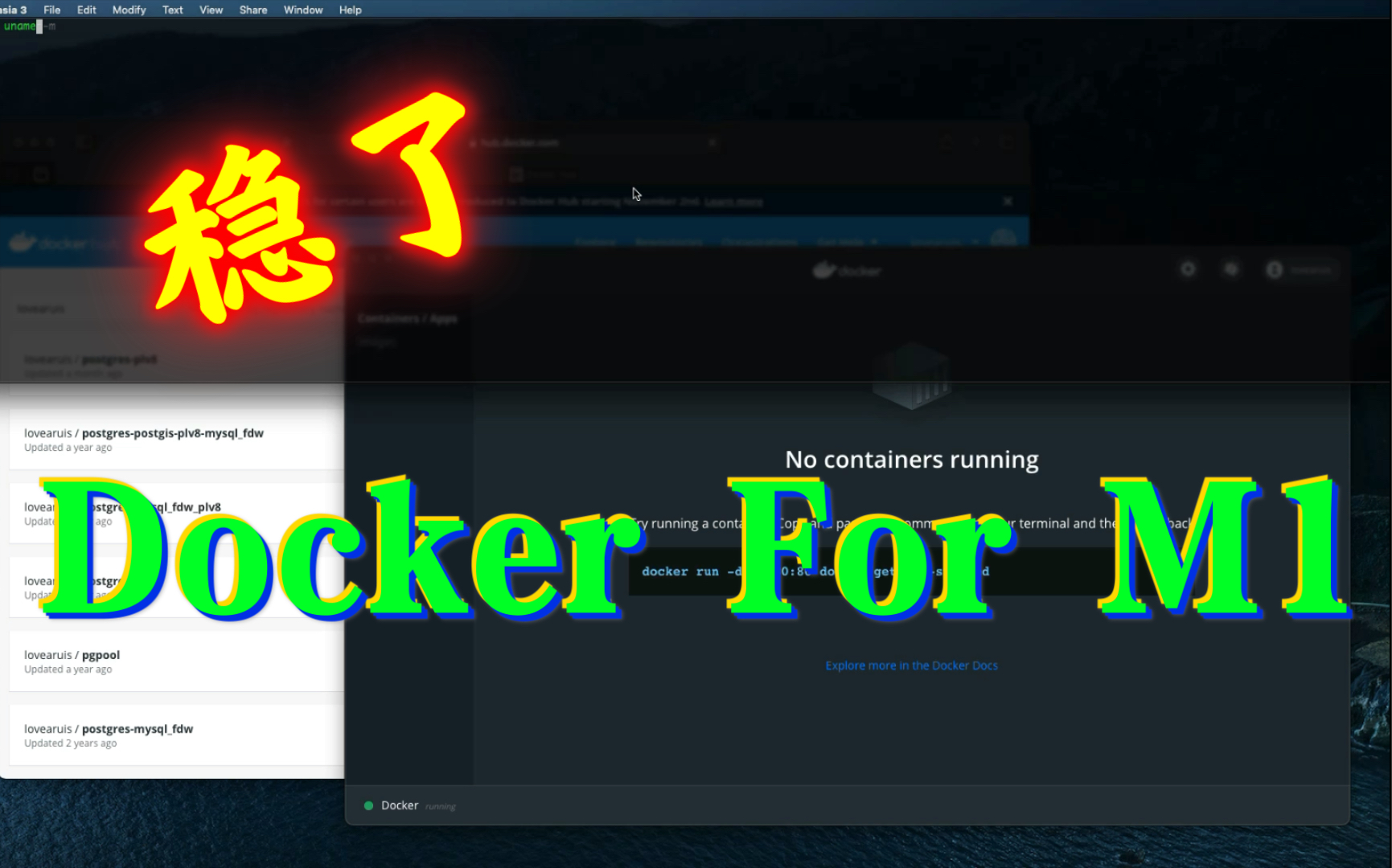

**c++:** **fatal error:** Killed signal terminated program cc1plus : Error: open CFI at the end of file missing. Building CXX object interpreter/llvm/src/tools/clang/lib/ASTMatchers/CMakeFiles// Scanning dependencies of target obj.clangASTMatchers Unsurprisingly that broke somewhere (I was building on two cores, so unsure what’s interleaved):
Docker on mac m1 pro#
After installing it on an x86 MacBook Pro it worked first time smoothly however on my preferred machine, an Apple M1 MacBook Air running the latest beta (5) of MacOS 12 Monterey, it was not so so easy. So I tried to build from source using 6.24.02. Just like docker machine makes it simple to run docker on Mac transparently via a VM, podman machine promises the same functionality for podman. If you try to create and run a docker container on M1 mac, the platform it looks for are linux/arm64/v8 And you get the following error: docker: no matching manifest for linux/arm64/v8 in the.

snap is weird in a container and wasn’t readily working.Debian doesn’t have a supported package-supported ROOT version (it would probably be obsolete anyway).All the pre-compiled Linux binaries are x86 and not arm* (hasn’t anyone put ROOT on a Raspbian RPi?).Instead, download Docker from the website manually. LauriElias That installs x86 docker and runs it on Rosetta, which does work but is probably not what you want.
Docker on mac m1 install#
This promptly led to several other issues: softwareupdate -install-rosetta and brew install -cask docker worked for me. I then attempted to create my own docker build based on Debian to match the Linux flow I use. It appears the ROOT docker images don’t have an arm-compatible build (although I didn’t test exhaustively). Note: Docker also supports Windows-oriented images, but that’s out of scope for this article so I won’t mention it against. On a newer Mac using M1/M2/Silicon chips, docker pull will the pull the linux/arm64/v8 image.
Docker on mac m1 for mac#
I know there are ROOT installation methods for Mac which should work, but I was hoping to containerize my software on this new machine to avoid some frustrations I’ve had in the past. In short: on an Intel/AMD PC or Mac, docker pull will pull the linux/amd64 image. Whether you prefer the GUI of macOS (even on M1), Windows. Multipass exists to bring Ubuntu-based development to the operating system of your choice.

Docker on mac m1 full#
One single command, no dependencies, full flexibility. Double-click Docker.app to start Docker on macOS.Ħ.I recently updated to a new M1 MacBook, and was wondering if a ready-made docker image exists? Especially one that works with PyROOT (and is at least compatible with Jupyter). Multipass has a new workflow tailored to run Docker containers on macOS, Windows or Linux. Now you need to authorize the installation with your macOS passwordĥ. once you have downloaded the docker desktop double-click the DMG file, and drag-and-drop Docker into your Applications folder.Ĥ. Open Terminal and run the command softwareupdate –install-rosetta (Only for Mac with Apple silicon)ģ. ( Mac with Intel chip, Mac with Apple silicon)Ģ. If you do, you’ll need to uninstall it.ġ.


 0 kommentar(er)
0 kommentar(er)
